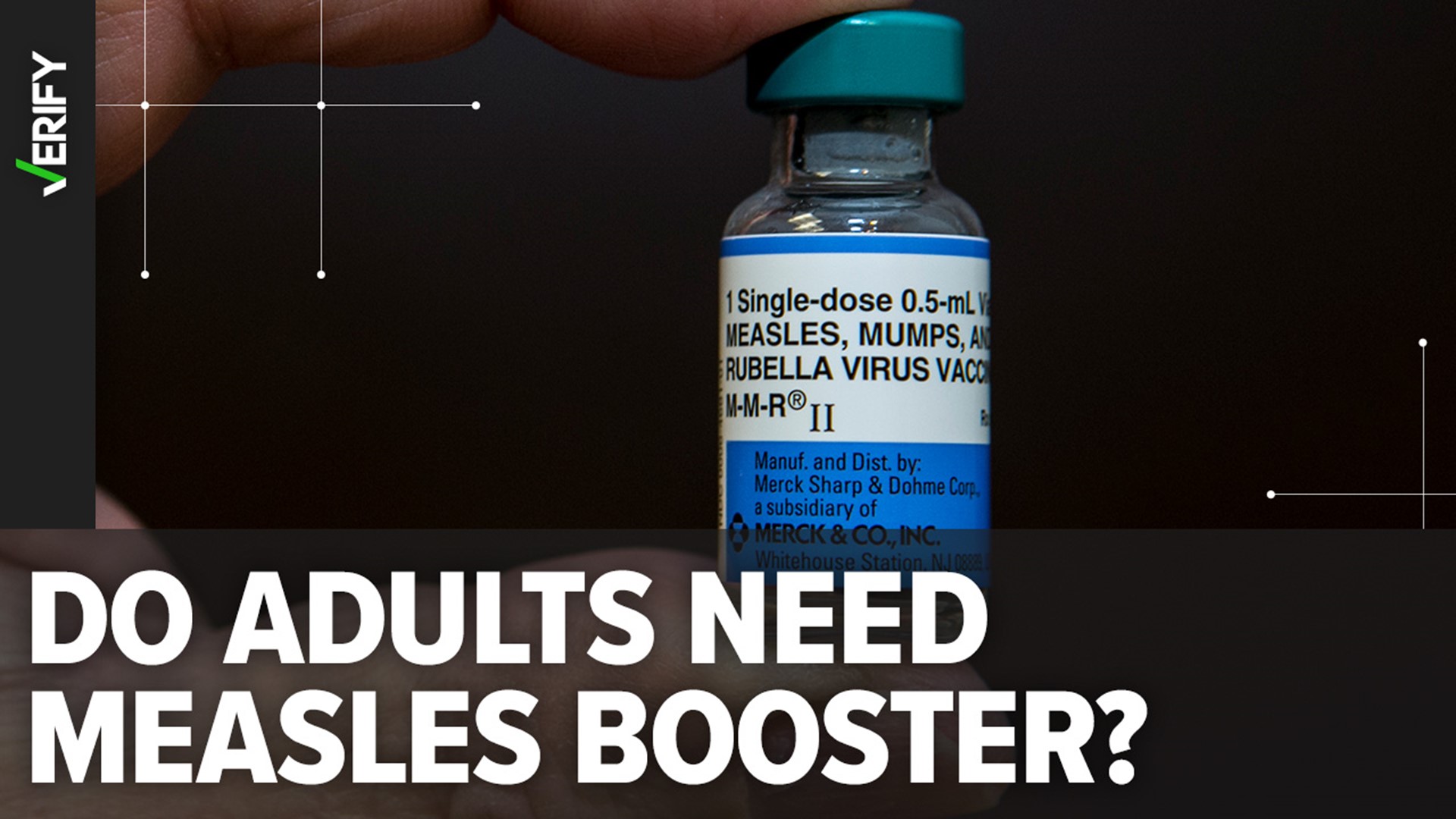Controversial Florida Surgeon General Joseph Ladapo is drawing criticism for his handling of an elementary school’s measles outbreak by refusing to bar unvaccinated children from public schools.
Measles outbreaks are rare in the United States, though reported cases have spiked from 58 cases for all of 2023 to 41 cases already this year.
In recent days, some social media posts suggest that some adults born between 1960 and 1989 who only had one dose of the measles, mumps and rubella (MMR) vaccine should receive a second dose, or “booster” shot. Questions about who needs a measles booster have also increased in recent days, Google search data show.
THE QUESTION
Do most adults born before 1989 need a measles “booster” shot?
THE SOURCES
- Centers for Disease Control and Prevention (CDC)
- Immunize.org, a nonprofit organization that educates health care providers and the public on vaccination
- William Schaffner, M.D., professor of infectious diseases at Vanderbilt University
THE ANSWER
No, most adults born before 1989 don’t need a measles “booster” shot. The exceptions to this guidance are for a small group of people who received an earlier, less effective version of the MMR vaccine, and those who are in high-risk environments.
WHAT WE FOUND
Most adults who received the MMR vaccine don’t need to get another dose, even if they only received one in the first place, according to the Centers for Disease Control and Prevention (CDC) and other health experts.
The exceptions to this guidance are for the small group of people who received an earlier, less effective version of the measles vaccine and those who are in high-risk environments.
The CDC currently recommends two doses of the MMR vaccine for every child over one year old. Children should get the first vaccine dose between 12 to 15 months of age, and the second dose between 4 and 6 years of age. These recommendations have been in place since 1989.
People who received two doses of the MMR vaccine as children are “protected for life” against measles and do not need a booster shot, the federal health agency says.
Prior to 1989, the CDC only recommended one dose of the MMR vaccine. But that doesn’t mean everyone born before then needs another shot.
“One dose of MMR vaccine, or other presumptive evidence of immunity, is sufficient for most adults,” a spokesperson for the CDC told VERIFY.
On its website, the federal health agency adds “there is no recommendation for a catch-up program among adults for a second dose of MMR (e.g. persons born before 1989 or otherwise).”
Immunize.org also says that “adults with evidence of immunity do not need any further vaccines.”
According to the CDC, presumptive evidence of immunity includes at least one of the following:
written documentation of adequate vaccination:
one or more doses of a measles-containing vaccine administered on or after the first birthday for preschool-age children and adults not at high risk
two doses of measles-containing vaccine for school-age children and adults at high risk
laboratory evidence of immunity
laboratory confirmation of measles
birth before 1957
“No ‘booster’ doses of MMR vaccine are recommended for either adults or children,” Immunize.org says on its website. “They are considered to have life-long immunity once they have received the recommended number of MMR vaccine doses or have other evidence of immunity.”
However, the CDC does recommend that certain adults who will be in settings that pose “a high risk for measles or mumps transmission” should make sure they have had two doses of the MMR vaccine separated by at least 28 days, the CDC spokesperson said.
These groups of people include students at post-high school education institutions, health care workers and international travelers.
A small group of adults may have received killed measles vaccines during childhood from 1963 to 1967. Health officials recommend revaccinating people who received the killed vaccine, or anyone who received a vaccine of an unknown type, during these years, the CDC says.
Live virus vaccines, including the current MMR and chickenpox shots, use the weakened form of the virus. Killed, or inactivated, vaccines are made from a protein or other small pieces taken from a virus or bacteria.
Even though most adults who only received one MMR vaccine don’t need another dose, William Schaffner, M.D., a professor of infectious diseases at Vanderbilt University, says there is no harm in getting another vaccine if they choose to do so.
Anyone who has doubts about their vaccination status or what type of vaccine they received should also get at least one dose of the MMR vaccine, he said.
People who are unsure about whether they should get another dose of the MMR vaccine should talk with their health care provider about what’s best for them.
The Associated Press contributed to this report.

